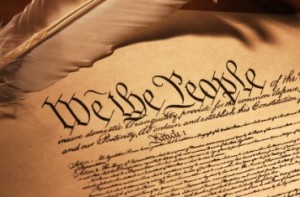T oday, U.S. Supreme Court Justices criticized the federal government’s argument that the Religion Clauses of the First Amendment do not apply to church decisions about hiring and firing ministers, calling the aggressive position “extraordinary” and “amazing.” The sentiment bridged the Court’s traditional ideological divisions, with Chief Justice Roberts, and Justices Kagan, Breyer, Scalia, and Alito all expressing disbelief.
oday, U.S. Supreme Court Justices criticized the federal government’s argument that the Religion Clauses of the First Amendment do not apply to church decisions about hiring and firing ministers, calling the aggressive position “extraordinary” and “amazing.” The sentiment bridged the Court’s traditional ideological divisions, with Chief Justice Roberts, and Justices Kagan, Breyer, Scalia, and Alito all expressing disbelief.
Justice Scalia rejected the Solicitor General’s argument saying that it is “in black and white in the Constitution” that religion requires special consideration. Several times he called the Solicitor General’s argument “extraordinary.” Commenting on the same point, Justice Kagan said, “I, too, find that amazing.”
The Court also repeatedly asked the government how courts could decide questions of pretext without deciding religious questions. Justice Alito said he had decided “dozens and dozens” of pretext cases, adding: “In every pretext case that I’ve ever seen” it comes down to the “real reason” that the employer fired the employee; but with religious employers deciding the real reason forces a court to make religious value judgments.
Justice Breyer also emphasized the difficulty of deciding questions of pretext: “There’s no way to avoid getting into [religious]matters.” Chief Justice Roberts said: “You’re making a judgment about how important a practice is to a church.”
Finally, the Court wrestled with how to define which employees are “ministers.” The Solicitor General argued that employees who have any important administrative functions are not ministers. Reacting to that argument, Roberts incredulously asked: “The Pope is a head of state and has important administrative functions, so he’s not a minister?” Professor Douglas Laycock, arguing on behalf of the Church, said that a person is a minister if they hold ecclesiastical office within the church and perform important religious functions, such as teaching religious doctrine.
After the argument, Professor Laycock said: “We were encouraged that the Court obviously rejects the government’s extreme position. The question is how to decide who is a minister, and the plaintiff in this case obviously fits the bill: She held ecclesiastical office, taught daily religion classes, and led students in prayer and worship.” He added: “She was the primary means by which the church communicated the faith to the next generation.”
Asked by reporters after the argument whether she was a minister or not, the plaintiff Cheryl Perich said: “No response.”
Background
Hosanna-Tabor operates a K-8 school founded on biblical principles. Cheryl Perich was a commissioned minister in the Church who taught fourth grade, taught religion, and led worship services. She was dismissed for insubordination and disruptive conduct and threatening to sue the Church, all in violation of church teachings. The Church and its denomination have long taught that disputes over fitness for ministry must be resolved within its denomination.
Perich claims the school retaliated against her for threatening to file a discrimination claim. The Church argues that forcing it to retain Perich against its will, or forcing it to pay large sums of money to get rid of her, would be an unconstitutional restriction on its right to choose its religious leaders.
The lower courts are unanimously agreed that ministers cannot sue their churches in disputes over qualifications, job performance, or rules for ministry—a rule known as the “ministerial exception.” The federal trial court applied the ministerial exception and ruled for the Church. But the Sixth Circuit Court of Appeals held for Perich, ruling that she was just a fourth-grade teacher and not really a minister. The school then retained the Becket Fund to seek certiorari to the U.S. Supreme Court, which agreed to hear the case because there was a difference of opinion among the federal courts of appeals about which church employees count as ministers.
Perich and the Equal Employment Opportunity Commission have now escalated the dispute, arguing that there should be no ministerial exception and that any minister — even a priest, a rabbi, or a pastor of a congregation — should be able to sue the church that employs him. This would be a revolution in church-state relations.



